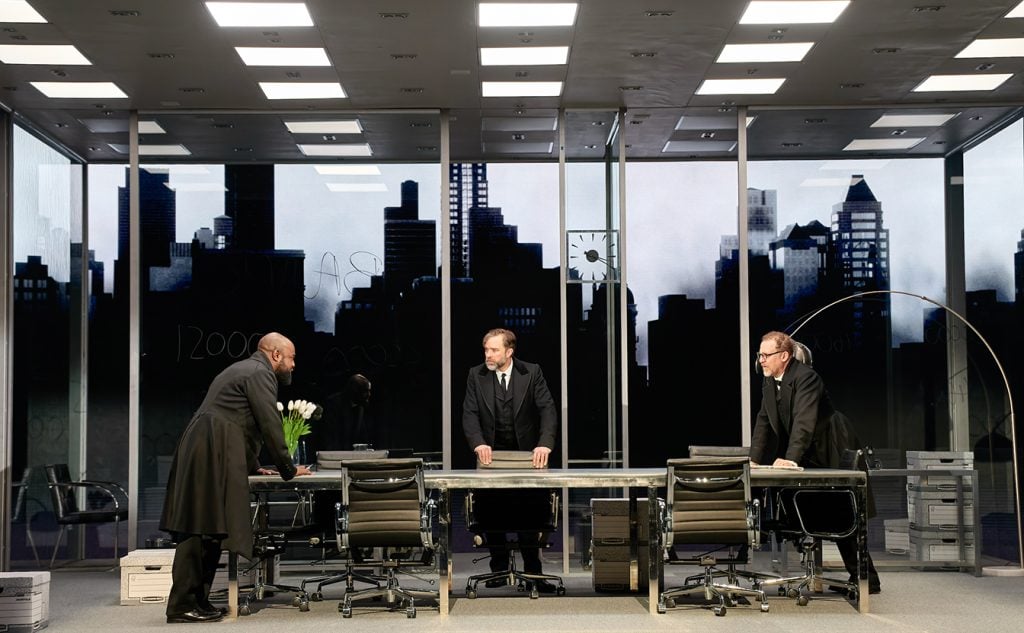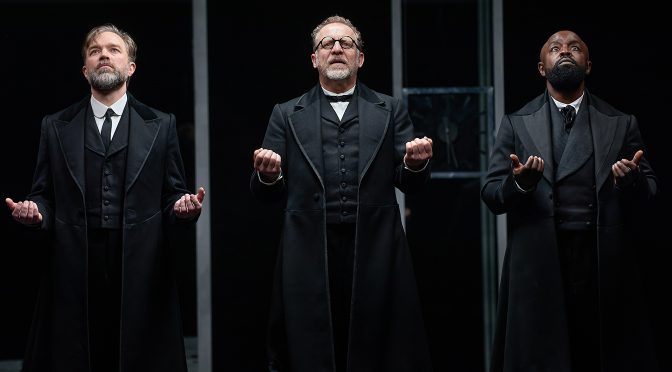Returning to London after a successful Broadway run, this hit show has a sense of confidence – fully deserved – that infuses the whole piece. Telling a story that starts in 1844, with only three performers, has its own kind of grandeur. Director Sam Mendes shows his skill as a brilliant storyteller.
Michael Balogun, Hadley Fraser and Nigel Lindsay perform as narrators as well as taking the roles of the Lehman brothers, their sons and grandsons. They also fill in for a variety of secondary characters, which means a lot of accents that, naturally, impresses. They never leave the stage – three hours and 20 minutes in total – and never lose focus.
It all seems simple. There’s some strong video and sound design from Luke Halls and Nick Powell. And Es Devlin’s set doesn’t change, although it does revolve. But it’s the impeccable manner with which Mendes paces the action in Ben Power’s adaption of Stefano Massini’s book that is the real success: key events build in momentum balanced by quiet moments of great stillness.

All the style and intelligence the show can boast is needed, given an odd script filled with poor humour. On the page, the dialogue must be horribly portentous. It’s not that the story isn’t interesting – rags to riches plus a potted history of America through the lens of finance. But there are more facts than ideas here. Oh, and frustratingly, the play explains little about the collapse of the Lehman bank.
The script and the action are clear, but there are a lot of recurrent lines, weighty metaphors and an odd mythic vibe that clunks along with tragedy, fire and flood – I was expecting horsemen at one point but guess that would have needed a fourth member of the cast. Epics often contain a good deal about gods: here there are self-consciously supernatural suggestions – the breath of inspiration – while the prodigious use of hindsight is, you might argue, unbelievable.
The emotional drivers are family and mortality, as we see the men age and die. The play is often moving. And the family proves inspirational… after a fashion. From selling cloth to cotton, and from selling the idea of reconstructing a community to the idea of consumption itself, their progress is spectacular. It seems there was always a dash of showmanship in the business. As with this production, the Lehmans’ achievements had confidence as the key.
Until 20 May 2023
Photos by Mark Douet

